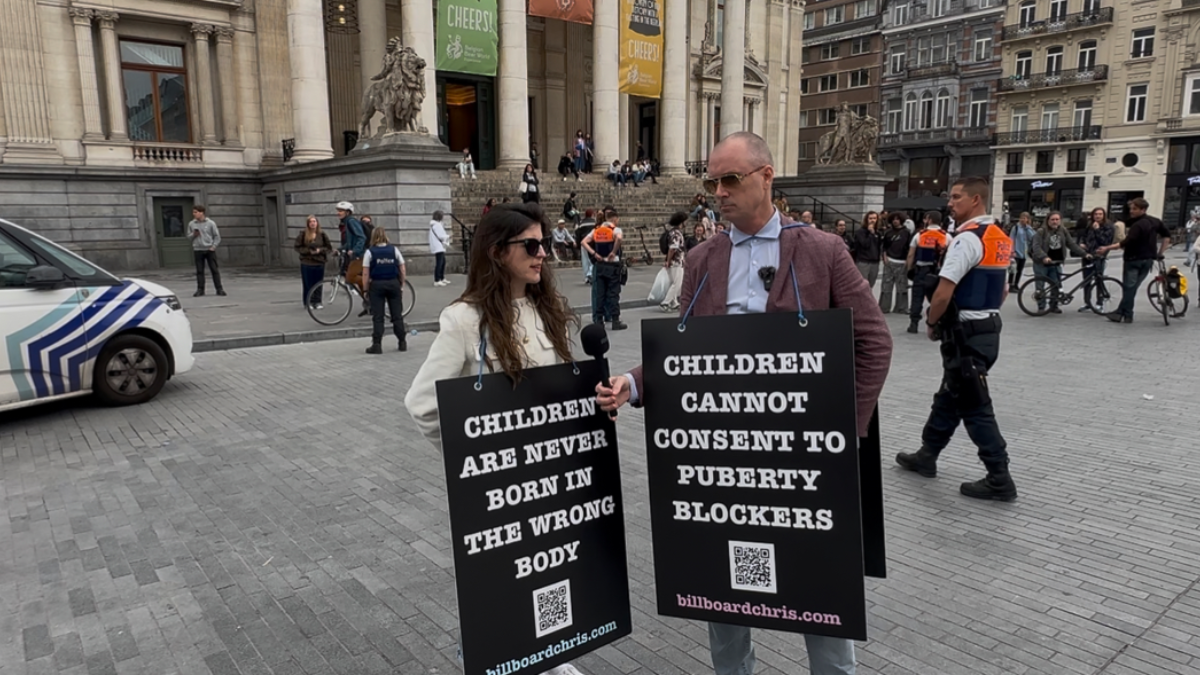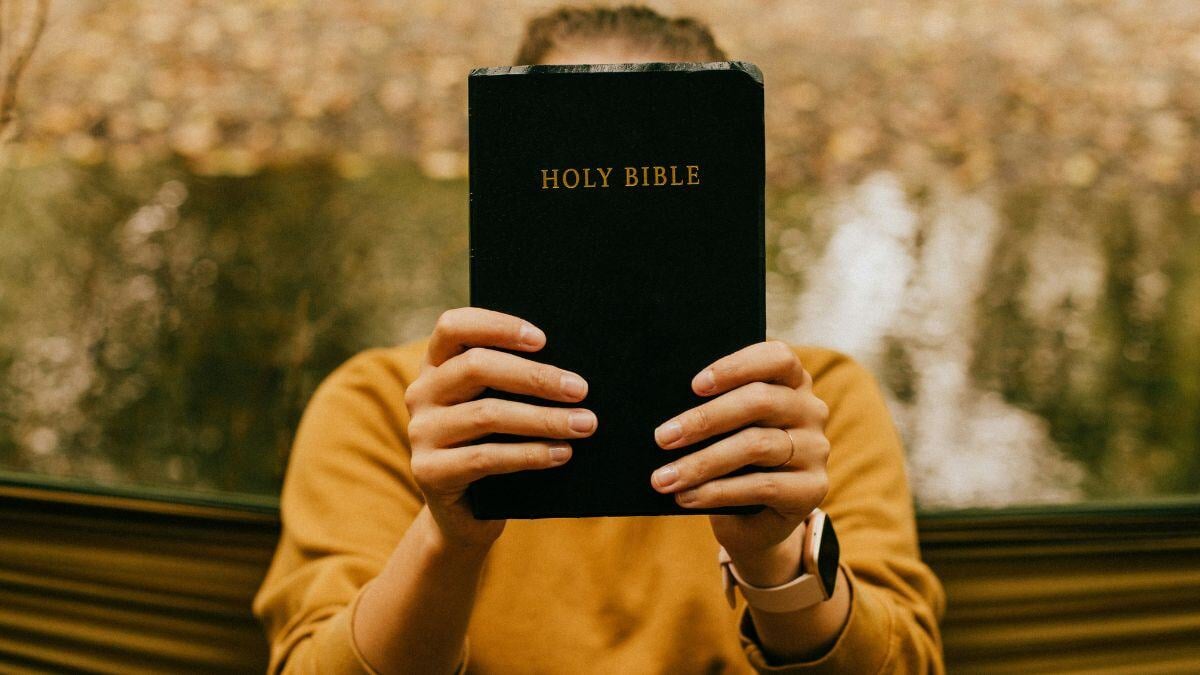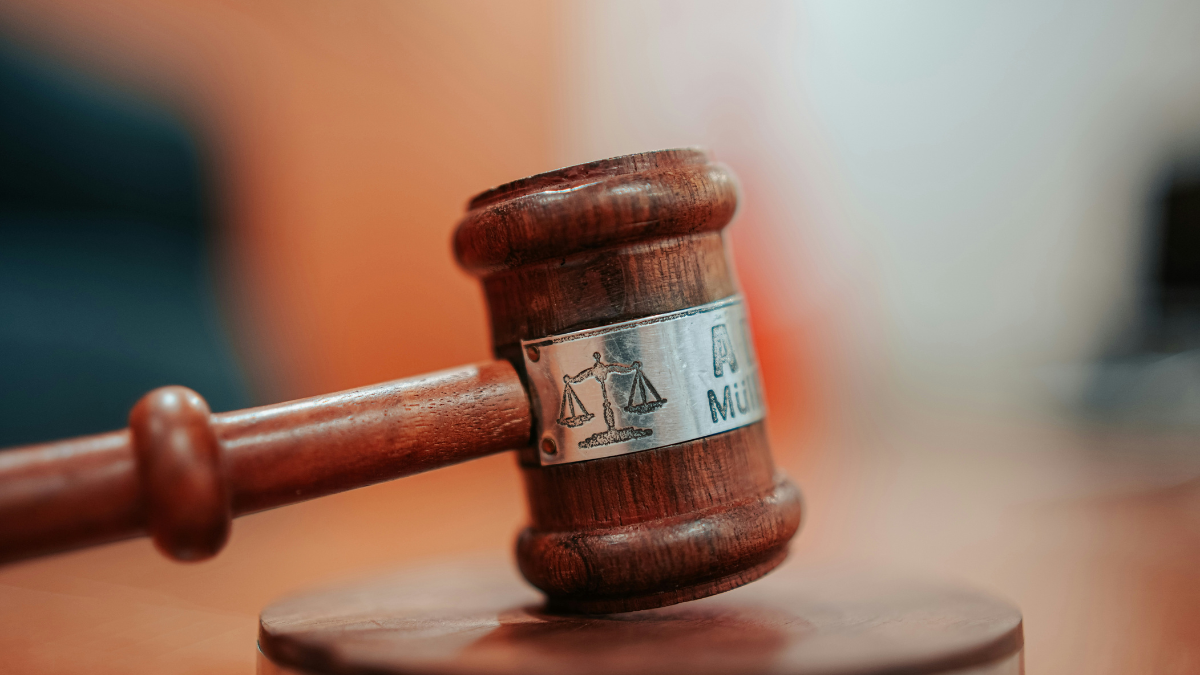No, Religious Freedom is Not “Safer Than Ever”
Author: John Stonestreet and Shane Morris

Authors: John Stonestreet and Dr. Timothy Padgett
In March, Chris Elston, known as “Billboard Chris,” was detained in Australia for protesting the harm done to children in service of radical gender ideology. He was detained again in Belgium in June, this time along with Lois McLatchie Miller, a senior legal communications officer for Alliance Defending Freedom (ADF) International. The two were simply standing in a public space, offering to talk to anyone interested about the realities of transgender treatment, wearing billboards that stated, “Children cannot consent to puberty blockers” and “Children are never born in the wrong body.” Though they called the cops to ask for protection from harassment, they were told to remove the signs or face arrest. After being detained and strip searched, they were released without charge.
Thought and speech has not always been treated this way. Because the West was deeply influenced by Christian consensus, citizens enjoyed the liberty, to various degrees, to challenge dominant paradigms and ideologies. That liberty is, based on what we’ve seen in Belgium and Britain and other nations, on shaky ground, from both state and institutional pressures. In some places, praying to yourself is considered unruly protest.
Just recently, Lila Rose of LiveAction shared the story of Naomi Best, a therapy student at Santa Clara University, an ostensibly Roman Catholic school in California. As part of the coursework, the university insisted that therapy students view extreme pornography and share their own sexual history. When she asked for the same exemption regularly given to Muslim students, they refused. When she described what happened in the pages of the Wall Street Journal, Best was kicked out of the program. As she pointed out,
If we don’t have a set of therapists with diverse worldviews, and with tolerance for people with diverse worldviews, we will alienate people who need psychological care, and we will cause more harm than good.
Totalitarian states such as East Germany and Soviet Russia guaranteed citizens the freedom of worship but would levy fierce and often violent penalties for spreading religion outside church walls. In those countries, freedom of conscience was only the freedom to believe in one’s heart and head and maybe, one’s house of worship. Worldview diversity was never something allowed to enter the public square.
The First Amendment guaranteed more. In just 45 words, it protects conscience rights that are public. Thus, nonsensical campus chants that “speech is violence” or “silence is violence” are, in law, separated from actual violence. The founders wanted a country in which citizens could think and worship as they believed but could also assemble together and take those beliefs out into the world. Both Belgium and Britain, which is currently debating whether saying things that offend Islam should be illegal, could use something like that, written down into law, about now.
Of course, all freedoms have limits. In the United States, that limit is not one’s own head or heart but real harm done to another. Certainly, that must be constantly clarified and adjudicated, but it’s a far better arrangement than a limit based on how someone else might feel.
The First Amendment is a bulwark against speech police and one of the Founding Fathers’ greatest legacies. It’s a structured freedom that is part of the inheritance of the Christian view of humanity, recognized as both sacred and sinful. It’s a legacy that will not last if people are not willing to express their deeply held beliefs and defend the right to do so.

Author: John Stonestreet and Shane Morris

Authors: John Stonestreet | Dr. Timothy D. Padgett This week, police in the city of Brussels shut down access to the NatCon conference. The official...

Authors: John Stonestreet and Dr. Timothy Padgett